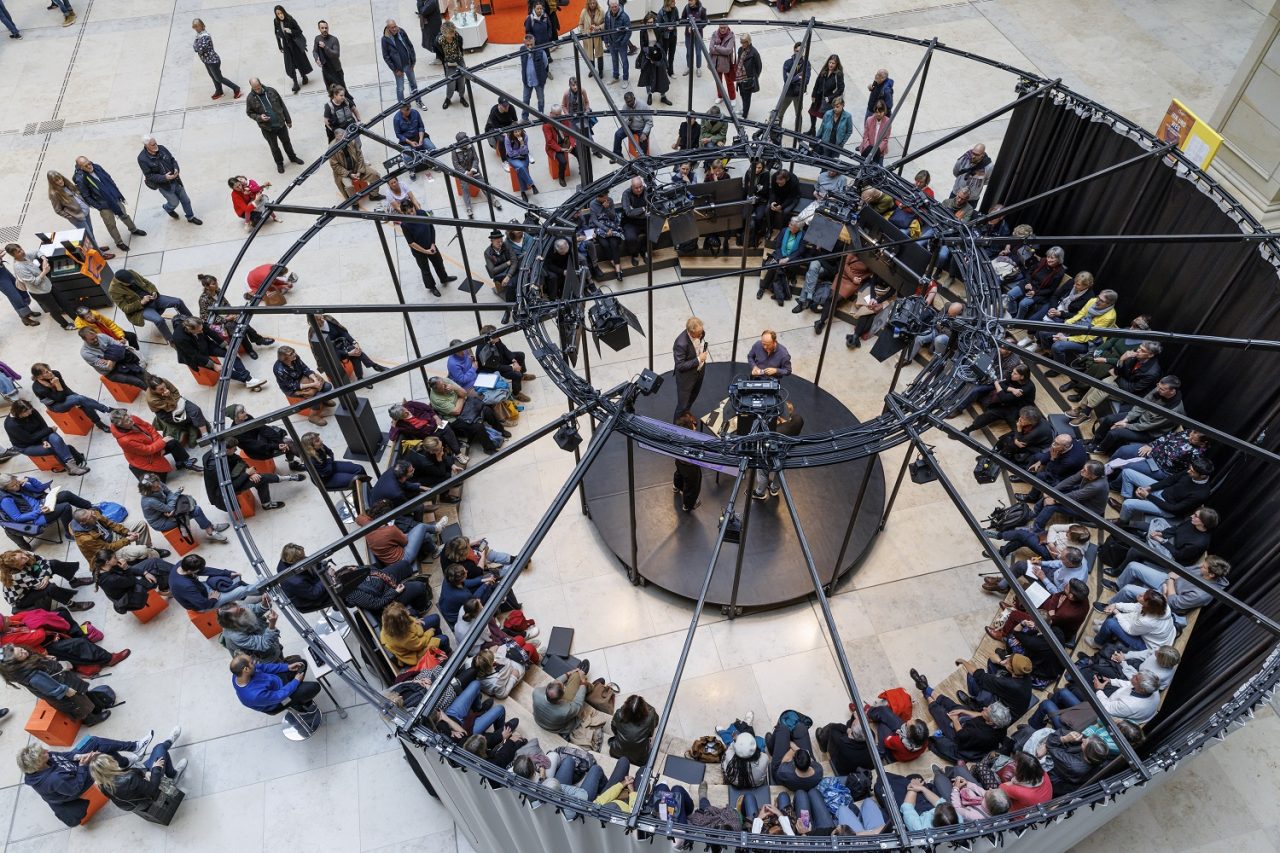Care in transition – Life situations, self-initiative, and social participation in old age
{{ time.start_TS | TS2dateFormat('MMM') }}
{{ time.start_TS | TS2dateFormat('YYYY') }}
| free admission |
| English, German |
| Mechanical Arena in the Foyer |
| Belongs to: Care or Chaos? |
The living situations of older people in Germany today are highly diverse. Between care shortages and loneliness on the one hand, and vibrant neighbourhood networks on the other, lies a wide spectrum of experiences. Added to this is the growing number of family carers – currently around 7.1 million people – whose role is central to the functioning of our care system, regardless of formal family ties.
The panel asks how care in old age can be rethought under the conditions of demographic change, social inequality, and rising old-age poverty. The focus is not only on institutional structures, but also on forms of self-initiative, neighbourhood support, and social participation.
A particular emphasis is placed on the situation of older people in a migration society. Many grow old far from their place of origin and – due to demanding working and living conditions, experiences of discrimination, and limited financial resources – are especially vulnerable to health problems and care needs. Language barriers and cultural differences further complicate access to services. Although culturally sensitive approaches have been called for over decades, suitable provisions remain patchy.
Participants
Almina Zisi is a caregiver for older people and those living with dementia. She contributed to the exhibition of the programme year Family Matters through an interview.
Nazife Sari is spokesperson for the working group Migration and Health at Gesundheit Berlin-Brandenburg e.V. A qualified social pedagogue, she has led the state-level project Intercultural Bridge-Builders in Care since 2015 and from 2020 to 2024 directed the project Bridge-Builders Palliative Care in Cologne and Berlin. She has many years of expertise in the fields of health (care management), nursing, social work, and migration.
Susanne Bauer runs the Beginenhof women’s housing project in Berlin-Kreuzberg and has lived there since it was founded. With a background in Islamic studies, modern history, and Romance languages, she completed her postgraduate studies at the German Development Institute and received her doctorate from Tilburg University. She considers herself an expert on the Middle East in the field of international development cooperation. Today, the native Berliner works with refugees who are learning German as a second language (DaZ).
Gabriele Garms was born in Trebnitz, Silesia, in 1939, from where she fled with her four siblings to Baden-Württemberg. After studying sociology and teaching, she worked as a teacher and principal, as well as a city councilor in Fulda. Today, she is the operator and press spokesperson for the Beginenhof in Berlin-Kreuzberg, a housing project for elderly women. Gabriele Garms is involved in trade unions and the “Omas gegen Rechts 3.0” (Grandmothers Against the Right 3.0) movement.
Julia Vismann is a presenter and science journalist. She hosts a wide range of science podcasts, including for the Research Institute for Sustainability at the GFZ (RIFS), Helmholtz Klima, the Berlin University Alliance (BUA), radioeins and rbb. As an editor, reporter and presenter, she works for radioeins/rbb, Deutschlandfunk Kultur and other ARD broadcasters. Her core topics include sustainable futures and global health. Julia Vismann entered the field of science communication through the Masterclass Science Journalism run by the Robert Bosch Stiftung and the Leopoldina. She also moderates conferences and events. She holds an M.A. in Film Studies, History and Politics.
Three panels open up different yet interconnected perspectives on the theme of care: from child and youth welfare, to elder care, to post-familial, collective practices. Together, they show that care is a responsibility for society as a whole – one that calls for institutional reform, new social models, and a critical reflection on family images.
